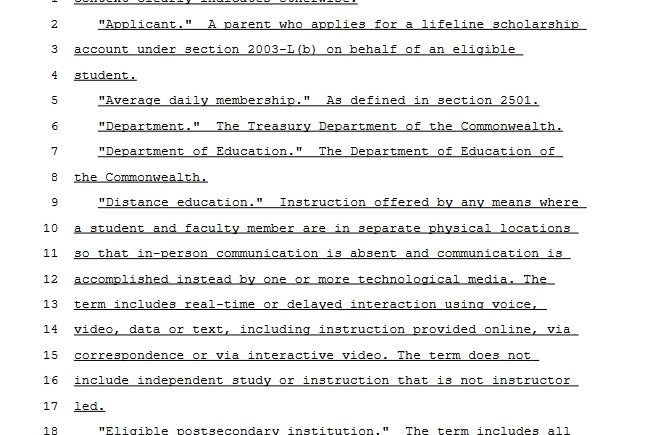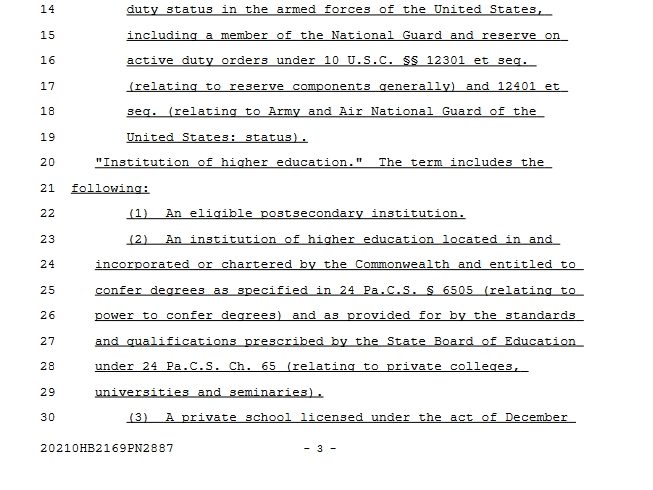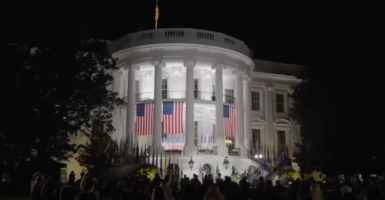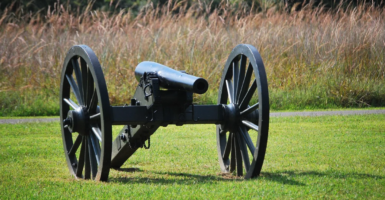See The Pennsylvania House Education Bill Passed To Fund Students Over Schools
An education committee approved a Pennsylvania education bill aimed at giving parents more school choice.

The Education Committee approved a Pennsylvania education bill aimed at allowing families to take their state tax money to use for private school alternatives. The tuition scholarship program would go to those students who find themselves enrolled in the state’s lowest-performing school districts. This passage now sends the measure to the full House for consideration.
Under the Lifeline Scholarship bill’s terms, an enrollee would only be able to use their portion of state funding. The federal funding students receive, along with local property tax dollars would stay within the students’ school district. The Pennsylvania Education bill was proposed by Rep. Clint Owlett, R-Tioga/Bradford/Potter, and Rep. Martina White, R-Philadelphia, and was passed by a near-party-line 14-10 vote that saw one Republican joining Democrats in opposition of the measure.

Owlett acknowledged that there are a number of great schools within the state, saying he had several in the district he serves, but “the challenge is, every child deserves to attend a great school but too many are unable to do so simply because of where they live.” The Pennsylvania Education bill looks to rectify that issue. While the bill appears to help students in poorer areas, there is plenty of opposition who see it much differently.
Pennsylvanians opposed to Vouchers is a combination of 25 advocacy and education groups who have been speaking loudly against the Pennsylvania Education bill. They say the program is an attempt to create education vouchers and this creation will take necessary funds away from the public school system. Rich Askey, president of the Pennsylvania State Education Association, claims two major issues arise from the possible passage of this bill.
Askey estimates that the Pennsylvania Education bill could take away $170 million annually from the public schools if a mere 10% of eligible students are awarded Lifeline scholarships. Askey also says that the measure has zero academic accountability for the private schools that will benefit greatly from these funds. “House Bill 2169 represents yet another ideological push to weaken public schools and privatize the public education system,” Askey said via The Daily Item. “It would take money from school districts with the most student needs and give it to private and religious schools without any real accountability for how the money is spent. This is another irresponsible tuition voucher proposal that will end up hurting Pennsylvania’s students, not helping them.”

Askey’s concerns are a contradiction to Pennsylvania test scores that reveal shocking numbers. Since the COVID pandemic took hold and school closures followed, 47 percent of the state’s eighth-graders are not proficient in language arts while an astounding 78 percent of those same eighth graders are not proficient in math. The numbers show that student learning loss was widespread, it was more prevalent in minority students. Proponents of the Pennsylvania Education bill say the new legislation will only improve this.
The Pennsylvania Education bill would provide Lifeline Scholarships to first through 12-grade students. These students must attend the bottom 15% of rated public schools. This rating is measured by the standardized testing seen through the school districts. Eligible students could then transfer out of the poor-performing school districts and take the state’s funding with them.
The Department of Education says Pennsylvania spent $19,224 on average per student during the 2019-20 school year. From that total, around $7,068 of those funds were from the state. This amount is what students would be able to take with them. To prove Owlett’s point and one more reason for introducing the Pennsylvania Education bill, his office provided data that showed just how far the public education system has fallen in the state. Their data shows that for the 2022-23 school year, 382 individual public schools in 35 counties found themselves on the low-achieving school list. Nearly half on this list came from the state’s two most populated counties – 143 in Philadelphia County and 43 in Allegheny County.
The big question now is if the measure will continue to move forward. It is scheduled to go up for consideration in the full house. If it passes there, it would then go to Governor Tom Wolf’s desk for his signature or his veto. You can see the entire bill here.



